
On this day, August 27, 2019, jet-car speed racer 30-year-old Jessi Combs, known by fans as the "fastest woman on four wheels," died in a crash in the Alvord Desert in Southeastern Oregon while trying to break a speed record.
 Post an Event
Post an Event
| Benton County Republicans’ Private Fundraising Event, “Bent-on Boots and Bling” with Trey Taylor |
| Friday, September 5, 2025 at 5:00 pm |
| Featuring Trey Taylor
Music Private Event
Friday, September 5, 2025 5:00-5:30 pm VIP Reception
5:30-8:00 pm Heavy Appetizers,
Auction, Concert
Red: $750 VIP Reception
Front Row Table Sponsor
White: $500 Table Sponsor
Blue: $50 per person
Limited Seating. Get Yours Now!!!
Support Local
Dress up: Bling, Cowboy, Patriotic Benton County Republican
FUNDRAISER
www.BentonGOP.org
Get your tickets today at:
https://www.bentongop.org/event-details/benton-county-republicans-fundraiser/form
About Trey:
Trey is the youngest African American Man in Country Music History. The Denver Post wrote
"It's impossible to miss his enthusiasm. With a fondness for cowboy boots, gaudy colors and dazzling jewelry, Trey Taylor could stand toe to toe with any of the Pop, Country or even Rap
contemporaries of his generation.“ |
| Trysting Tree Golf Club, 34028 NE Electric Rd., Corvallis |
“Oregonians everywhere deserve better than big, blanket mandates from unelected bureaucratsâ€
Following California’s lead the Environmental Quality Commission adopted an Advanced Clean Cars II Rule, effectively banning the sale of new gas-powered vehicles by 2035 and requiring manufacturers to follow suit.
Senator Fred Girod (R-Stayton) and Senator Lynn Findley (R-Vale) released the following statement:
“This action was taken covertly behind closed doors by administrative rule using the Governor’s executive order , usurping authority from the Legislature. It appears to be a clear violation of separation of powers. DEQ is an agency that has gone amuck and shows a desperate need for administrative oversight. Almost all states require legislative oversight of administrative rule. That’s why I’m prepared to introduce legislation in the upcoming session doing just that,†said Senator Girod.
“Additionally, we have so much forest set aside in Oregon that the amount of carbon being sequestered by our forests comes close to compensating for the carbon shortfall that this new rule is intended to address. I plan to introduce legislation which would mandate that the stored carbon in Oregon’s forests be included in carbon emissions calculations,†concluded Girod.
 “Oregonians everywhere deserve better than big, blanket mandates from unelected bureaucrats and interim directors,†said Senator Findley, who sits on the Joint Committee on Transportation. “This is an issue that requires greater input from the public and legislative review before being acted upon. Taking that authority away only exacerbates distrust in our state agencies.â€
“Oregonians everywhere deserve better than big, blanket mandates from unelected bureaucrats and interim directors,†said Senator Findley, who sits on the Joint Committee on Transportation. “This is an issue that requires greater input from the public and legislative review before being acted upon. Taking that authority away only exacerbates distrust in our state agencies.â€
The Environmental Quality Commission voted to approve the Advanced Clean Cars II Rule at a special meeting on Monday, December 19th. The rule is based on vehicle emissions standards adopted by California in August.
The ban will not affect cars already on the road or the purchase of used gas-powered cars but will require those interested in purchasing a new gas-powered vehicle to take their business outside of Oregon. This rule is based on vehicle emission standards adopted by the State of California in August.
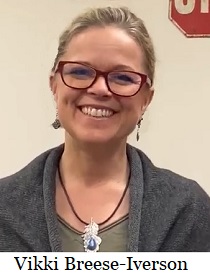
“This is the latest out of touch example of what our state agencies and commissions have become,†said Leader Breese-Iverson. “Once again, as Governor Brown’s days in office are winding down, she is working to solidify her progressive legacy without being held accountable. While this decision will disproportionately hurt working-class Oregonians, it also ignores the unrealistic and short-sighted goals of the battery powered manufacturing industry.â€
“Unelected bureaucrats should not be making decisions for everyday Oregonians,†said Representative Boshart Davis, Vice Chair of the Joint Committee on Transportation. “Governor Brown continues to be the least popular governor in America because she chooses to put her ideology over what is best for Oregon. The Oregon House Republicans will continue to be a voice for hardworking Oregonians who don’t feel as though they have one.â€
In 2020, Governor Brown signed
Executive Order 20-04 which directed state agencies to drastically reduce emissions by 2035. In 2021, Governor Brown set the most unrealistic timeline for moving to unreliable electricity sources in the United States -- driving up costs for low- and middle-class families.
--Staff Reports| Post Date: 2022-12-21 10:59:58 | Last Update: 2022-12-21 11:37:56 |
Requires All New Vehicles to be Zero Emissions by 2035
The Oregon Department of Environmental Quality under the direction of Interim Director Leah Feldon has announced its
Advanced Clean Cars II Proposed Rule which center around making the sale of internal combustion engines illegal by the year 2035.
The newly proposed rules are an update to
an existing rule containing a leviathan list of definitions.
In a presentation to the legislature, The DEQ says that "These rules are a critical component to achieving state’s GHG reduction goals" and that these rules are "Closely linked to other DEQ programs" including Climate Protection Program, Clean Fuels Program and Advanced Clean Trucks
According to the presentation, the rules can be summarized:
- EVs must have a minimum electric range
- Battery Electric Vehicles – 150 miles
- Plug in Hybrid Electric Vehicles – 50 miles
- Durability – 80% of certified range value for 10 yr/150,000 mi
- Warranties – for parts and battery state of health (maintain 70-80% of battery range for life of vehicle)
- Charging cord capability (Level 1 and 2 capable)
- Increased charger size capability (to allow for faster charging)
- Battery labeling
- Address battery recycling

The
proposed rule is merely an update of the list of definitions from the current rule as well as the "cut-and-paste" adoption of California Non-Methane Organic Gas Test Procedures. It will limit and ultimately ban the sale of internal combustion engine vehicles by the year 2035 -- a mere 12 years from now.
The included graph shows the expected decline in sales and "on-road" operation of internal combustion vehicles in Oregon in future years. Experts have questioned the expectations behind the graph and the resulting trends portrayed.
--Staff Reports| Post Date: 2022-12-21 06:36:47 | Last Update: 2022-12-20 15:51:59 |
If we have the Secret Ballot because we don’t trust the government, why do we trust the government to count our Secret Ballots?
Election fraud has been with us for a very long time. A hundred fifty years ago, a Democrat organization called Tammany Hall ran New York City with graft, fixed elections, and street power. For almost a century, Tammany hand-picked the political leaders, with elections a mere formality.
In Georgia in 1962, Jimmy Carter struggled against widespread election fraud and the entrenched political machine. He proved his case in court and won a re-election.
The tricks for fixing elections are many: Artificial migration, disenfranchising voters through such devices as poll taxes and literacy tests, division of opposition support, intimidating voters, disinformation, vote buying and coercion, misleading or confusing ballot papers, ballot box stuffing, misrecording the votes, misuse of proxy votes, destruction or invalidation of ballots, electronic systems fraud, voter impersonation, ballot harvesting, registration of fake voters, ballot box stuffing--each a separate technique tuned to the times.
Many of those methods depend on a corrupt county organization: When the election staff is part of the government, anything can happen.
My wife and I spent some hours observing the County staff processing ballots during this election. We were lucky to be on a shift when temporary workers were being briefed and trained, so we could be trained in parallel.
This County usually receives more than a third of a million ballots by mail. That is a staggering number, easily said but difficult to comprehend. 333,000 inches is longer than five miles. 333,000 miles is the distance to the moon and halfway back. If one person tabulated that many ballots, one per minute, eight hours per day, he would finish the count in about two years.
How was ballot counting done before the age of computers?
The solution was borrowed from our friends, the ants. No single ant tries to dig a nest and build an anthill by herself. If the colony contains a million ants, half a million will undertake the project, one grain of sand at a time. The nest must be large to house many ants, but the size of the colony defines the workforce. The problem of providing for a large ant colony leads directly to the solution with a large supply of ant-power.
Similarly, before we had computers, no single person attempted to count all the ballots. The counties were divided into precincts, and each precinct had one or more polling stations. Each polling station was staffed with volunteers to manage the voting and count the ballots.
The impossible anthill was manageable when undertaken by hundreds of willing hands, often producing an election result (in those distant times) within 12 hours.

I have observed a manual recount of ballots for selected precincts by a team of twelve workers with parity for opposing parties. On that scale, manual ballot counting for each position was 90 minutes of work.
The poll workers of old were comparable to jury members, drawn from the ordinary population, rather than government employees or teams of workers supervised by government employees. They were members of the community who came forward to enact the will of the community, where the majority of good will (hopefully) suppressed the minority of ill intent. The workers were paired from opposing parties so that no single individual need be trusted.
The station was set up in a public hall or a church. On entry, the voter was checked off on the voting list and issued a ballot. The voter went into a privacy stall, marked the ballot, dropped it in the sealed box, and left. Workers were stationed around the room to discourage funny business. In many localities, the pubs were closed to keep the voters sober. And as of 2014, seven states (Alaska, Indiana, Kentucky, Massachusetts, South Carolina, Utah, and West Virginia) still banned the sale of alcohol on election day.
When we say "secret ballot," we mean that no one knew how any particular voter marked his ballot. If a mobster attempted to bribe or intimidate a voter, the mobster could not verify that the voter followed through—because the voting was always done in the private booth (Secret A). And if a poll worker attempted to identify a ballot with a particular voter for later punishment or reward, identification was not possible because the ballots in the box were anonymous (Secret B).
With the small precinct and local workers, many of the voters were personally known to the workers and the chance of a voter registering to multiple precincts was reduced. It wasn't eliminated, but neither was any other form of secret double-dealing, such as bigamy.
Having hundreds of years of experience to draw on, the architects of our system knew that governments could not be trusted to conduct honest elections. When the mayor counts the ballots for the mayoral election, he enjoys a long and comfortable term of office and is rarely voted out.

In modern day, computers and "trust your government" propaganda have changed many things, and not all for the better. The mountains of ballots for all the precincts in the County are dumped into one office. They are zipped through high-speed sorting and computing machines operating on invisible instructions. Like a man at the carnival running a super pea-in-shell game, the size and speed of the operation defy meaningful observation.
The voter registration lists, though maintained by computer, are demonstrably error-prone. In one informal study conducted recently in Oregon, 26% to 30% of the households polled had "phantom" voters--names that were registered to those addresses even though no such persons were living there. An address within the County would enable a person to vote on a County ballot, but the voter may be out of state or even out of the country, as determined by a second address field in the registration. "One person, one vote" has become "One database entry, one vote." The integrity of that list is totally under the control of the government.
The voter completes the ballot at any time, anywhere. Sitting in the company of a mobster, the voter marks his only ballot, signs the envelope, and hands it over to be mailed by the mobster. Conversely, a group of workers meet their union boss in the pub with their ballots in hand, mark their ballots in company, sign the envelopes, and leave them with the boss to mail. Thus, Secrecy of the Ballot (Secret A) is lost.
At the other end of the process, we now trust the government to count our votes. The ballot contains the votes, and only the envelope contains the voter identification with the signature. Allegedly, once the ballot is removed from the envelope, the relationship is severed and the ballot becomes as anonymous as one dropped in the ballot box of an old-time voting station.
But the devil is in the details. Every ballot in our County has a unique number and bar code. The County Clerk explained to me that the number is generated by the Verity database and no one can map the number back to voter identity once the ballot is removed from the envelope. And even if that were true, I wonder. What prevents the County computer from recording the ballot number with the addressee when the envelope is originally assembled for mailing? We don't know.
Even more alarming, when the signature on the unopened envelope is verified by the elections worker, every state and County record going back decades is displayed for reference, from property records to political party affiliation and social credit score. At that point, a corrupt system could discard the voter's ballot and replace it with a pre-marked dummy to satisfy the audit. Who would know?

Thus, Secrecy of the Ballot (Secret B) is lost in the counting-house. Take note here that I do not accuse anyone of impropriety. But with all these "improvements," the people are obligated to trust the government, and that has rarely turned out well.
However, by maintaining the myth of the secret ballot, the processing is obscured beyond all tracking. Once the ballot is separated from the envelope, all hope of confirming that one's vote was correctly tabulated is also lost. The end-to-end process is concealed from the workers by highly specialized tasks. Observers are baffled by its complexity. The security of the bushels of ballots is guarded only by the lock on the office door—to which the County workers have weekend and midnight keys over the two weeks of processing and producing the election result. The internal operation of the computers is known only to the engineers, who are sworn to secrecy by non-disclosure agreements. The settings on the computers are known only by the technical staff. And the security on the computers is guarded only by the promise that they are not equipped with WiFi.
In Oregon, the whole process is so complex, the descriptive manual is 90 pages long (https://sos.oregon.gov/elections/documents/vbm_manual.pdf).
In simple terms, mail-in ballot elections rest on a fundamental contradiction: If we have the Secret Ballot because we don't trust the government, why do we trust the government to count our Secret Ballots?
--Mark DeCoursey
| Post Date: 2022-12-21 06:29:46 | Last Update: 2022-12-21 11:17:08 |
“There is evidence to suggest that Hai Pham does not currently live inside House District 36â€
A complaint has been filed with the Oregon Elections division. According to the complaint, "There is evidence to suggest that Hai Pham does not currently live inside House District 36. His social media posts and photos on his campaign website seems to indicate that he lives in a house outside of the district, while claiming residency on official election forms that he lives with his parents at a house his parents own inside District 36."
The complaint further alleges that "[e]ven if it is true that he does live with his parents, (while his wife and newborn child live in a home outside of the district, as shown on her voter registration) he would need to prove that he has lived there for at least a year as prescribed by the Oregon Constitution. Voter registration records seem to indicate he updated his registration January 26, 2022. If that is the date he moved back in with his parents, that would not be long enough to establish one year residency within the district as required by the Oregon Constitution."
The complaint references a
document full of evidence supporting the claims.
The Washington County Republican Party has posted an
alert on their website asking people to contact the Secretary of State regarding this complaint.
Currently the Secretary of State website lists Democrat Hai Pham as defeating Republican Greer Trice by 19,629 votes to 12,272
This isn't the first time during this election cycle that the Secretary of State has failed to take action in a residency case involving a Democratic candidate. During the primary, the
residency of Brad Witt was questioned and the Secretary of State failed to take action.
--Staff Reports| Post Date: 2022-12-20 12:29:03 | Last Update: 2022-12-20 15:48:12 |
“Education helped me break the cycle of poverty in my familyâ€
Oregon’s Higher Education Coordinating Commission and state leaders must focus more urgently on student performance at community colleges, student support, and the colleges’ financial stability amid persistent enrollment declines, according to an
audit released by the Oregon Secretary of State’s Office.
“Education helped me break the cycle of poverty in my family,†said Secretary Fagan. “Our community colleges are important gateways for students from lower-income families, for older and rural students, for working parents, for workers needing retraining. They are also crucial for Oregon’s economy. State leaders need to focus on them now more than ever.â€
The audit found improvements in key areas since HECC began overseeing Oregon’s 17 community colleges in 2015, including improved student performance and increased financial aid for students. Predictably, the audit clamors for more spending, though it does recognize that community college spending has risen. "Despite increased state funding, Oregon’s colleges face substantial threats to sustainability, including enrollment declines that outpace other states, with little strategic guidance or state oversight."
Auditors also found substantial deficits. Oregon’s community college student performance still lags behind other states and equity gaps in student performance persist. Accountability, effective public reporting of student results, and use of data to drive improvement are all limited. Crucial student support services are inadequately monitored and supported. State financial aid still has substantial gaps and an inequitable design. Monitoring of college stability is minimal, despite declining finances and enrollment drops that outpace the nation.
The audit includes five recommendations to HECC. It also recommends that the Governor and Legislature provide HECC with greater direction and authority, and that state leaders increase HECC and college staff in key areas as needed to help address the substantial risks the colleges face.
A D V E R T I S E M E N T

A D V E R T I S E M E N T
As a coordinating agency with limited statutory authority, HECC cannot force colleges to make operational changes. Locally elected college boards are responsible for college operations. Instead, HECC’s role includes monitoring the system’s performance, reporting quality information on how the system is doing, and working with the colleges and state leaders to address problems that arise. HECC can take steps to improve in this role immediately, but also needs stronger support from state leaders to be more effective in spotlighting problems and providing solutions.
HECC is the statewide agency over community colleges, public universities and private colleges. The audit focused on its role with community colleges and their roughly 125,000 for-credit students. The state spent $700 million in the 2021-23 biennium to support community college operations. For 2023-25, HECC is requesting substantial increases in community college operations and financial aid funding. It is also requesting additional funding to help colleges and universities better serve students from underserved groups, such as students from low-income families, first-generation college students, and students from historically underserved races and ethnicities.
--Staff Reports| Post Date: 2022-12-19 22:51:42 | |
Markiewicz and Hedlund will fill vacancies
Oregon Governor Kate Brown has announced that she will appoint judges to the Jackson and Klamath County Circuit Courts. Governor Brown will appoint Jeremy Markiewicz to the Jackson County Circuit Court to fill the vacancy created by Judge Lorenzo Mejia’s planned retirement, and will appoint Stephen Hedlund to the Klamath County Circuit Court to fill the vacancy created by the planned retirement of Judge Daniel Bunch.
Both appointments are effective on December 31, 2022.
Â
“Jeremy Markiewicz and Stephen Hedlund are talented lawyers, and are ready to make significant contributions to the trial court bench,†said Governor Brown. “Both will bring a passion for justice, devotion to their communities, and empathy for the litigants that will appear before them.â€
Jeremy Markiewicz earned a bachelor’s degree from Willamette University, the first in his family to graduate college. He went on to earn his law degree from University of Colorado School of Law. After graduation, he moved to Southern Oregon, where his entire legal career was with the Jackson County District Attorney’s office, first as a deputy district attorney and, since 2013, as the Chief Deputy District Attorney. Markiewicz serves on the board of the Children’s Museum of Southern Oregon, the Southern Oregon Financial Fraud and Securities Team, and is a member of the Rotary Club of Medford. He also is active with the Southern Oregon Campaign for Equal Justice and the Classroom Law Project.
Â
A D V E R T I S E M E N T

A D V E R T I S E M E N T
Stephen Hedlund graduated from Klamath Union High School and went on to earn his bachelor’s degree from Oregon State University, and his law degree from Willamette College of Law. Upon graduation, he moved back home to Klamath Falls and began his legal career with the Klamath County District Attorney’s office. He then transitioned into private practice, with a focus on indigent defense work, including criminal and juvenile dependency matters. He also provides legal representation for public entities and public officials. Hedlund serves as the defense attorney in Klamath County’s behavior intervention court and veterans treatment courts, and as a member of the Local Public Safety Coordinating Council. Since 2016, Hedlund has served as a pro tem judge for the City of Klamath Falls Municipal Court. He also serves as an arbitrator for the Oregon State Bar Fee Dispute Resolution Program.
--Ben Fisher| Post Date: 2022-12-19 21:00:08 | Last Update: 2022-12-19 21:17:18 |
“I hope to see a new generation of freedom loving men and womenâ€
After over eight years of elected service the people of southwest Oregon, Senator Dallas Heard (R-Roseburg) announced he will be stepping down and retiring from his seat in the Oregon Senate effective January 1st, 2023. In a letter addressed "To the community I love" Senator Heard said,
After 8 years of serving as your voice and advocate in the State Legislature I have decided that I need to retire for now from this level of public service, until my children are at an age where they are more ready to face the world on their own.
This has proven to be the most difficult decision I have had to make. Ever since I was a child, I always dreamed of being your servant champion. Being a native son of the “Timber Capitol of the World†has always instilled tremendous pride in my soul for our community. You are a good, hard-working, and noble people. A people that I have always found easy to love with all my heart.
The past few years have been very hard on everyone. Thank you for being the kind of people who made it easy to stand up in Salem for the freedom and rights of all citizens during the COVID era. I never had to question if the overwhelming majority in my district was with me in standing up for the few, the weak, the poor, and the oppressed. I have wrestled with this decision for the past several months. In the end I decided that until my sons are several years older, they must be my full focus and priority. My family must have my undivided attention. I want to thank my bride Hannah for always being a true rock of love and support to our children and to me throughout the entirety of my time in Salem.
A D V E R T I S E M E N T

A D V E R T I S E M E N T
The country as a whole has seen an ever-growing movement of evil rising that is determined to take our children’s hearts and minds away from their parents. I hope to see in the near future a new generation of freedom loving men and women rise and run for elected positions such as school boards and the legislature. If you can’t run for a position, please look for and support those who can. We have so many opportunities to do great acts of service for our children and neighbors, but it is going to take all of us doing our part to bring good things into reality. We have been losing this state and nation because collectively we are doing almost nothing to fight the good fight. Roughly 50% of conservative registered voters chose not to vote in this year’s Oregon General Election. We must do better than this if we hope to stand a chance. We can turn this culture around for the cause of freedom and what is good and right before God, but we must choose to care.â€
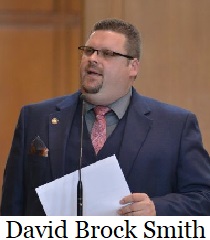
Representative Brock Smith (R-Port Orford) has announced his plans to succeed Senator Heard after his retirement from the Oregon Legislature.
“It has been a privilege and honor to serve the people of House District 01 in the Oregon Legislature with Senator Heard,†said Rep. Brock Smith. “Our collaboration has stopped and/or modified bills that would have negatively impacted our district and has moved others forward that benefit the people of District 01 and Oregon as a whole.
Additionally, we have worked together to secure millions in resources for our District. This includes securing millions to Curry Health Network to help them open their life saving Emergency Department, millions to treat and stop the spread of Sudden Oak Death, that if left untreated, would be another huge blow to our timber industries.
Representative David Brock Smith has served in the Oregon House of Representatives since 2017 and is an Assistant Leader of the House Republican Caucus. He is a former County Commissioner, School Board Member, City Council President, Chamber President-Director and has held many other elected and appointed positions in his nearly twenty
years of public service.
“I am honored to have the support of Senator Heard and look forward to continuing to forge a solid team with Representative Osborne, Representative Goodwin, Representative Wright, Senator Anderson and my successor, to bring the voices and values of the people of Curry, Coos and Douglas Counties to Salem,†said Rep. Brock Smith.
--Staff Reports| Post Date: 2022-12-16 23:16:37 | Last Update: 2022-12-17 11:54:31 |
"statewide alternative high school as an intervention program"
Oregon Youth Challenge Program (OYCP) is The Oregon National Guard's alternative high school, located in Bend, Oregon; it gives at-risk students a second chance to catch up on credits. In addition, the program allows attendees to re-enter high school, graduate on time with their peers, or graduate from OYCP with a state-accredited high school diploma. OYCP graduated 131 cadets from their 22-week program at the Deschutes County Fair & Expo Center on Wednesday, December 14, 2022.
Oregon has 4.7 percent of students enrolled in alternative programs with a 19 percent dropout rate according to a 2017 audit. In 2016 voters passed Measure 98, which helped to implement the High School Success Program that focuses on improving graduation rates. The Oregon Department of Education High School Success Program website still uses the 2017 report for graduation rate data. The
2022 audit not only evaluates Measure 98 and the five funding programs implemented, but five additional related programs. The dropout prevention strategy for these programs is based on activities to reduce chronic absenteeism for students at risk of dropping out and giving them academic and social support and providing them with early exposure to employment opportunities and options for post-secondary education.
In 1999, the Oregon National Guard established the OYCP in Bend as the only accredited statewide alternative high school as an intervention program to reclaim the lives of Oregon teens who had dropped out of high school or were not on track to graduate. To help at-risk students, the Department of Defense invested in the OYCP style challenge model for youth development and community outreach.
A D V E R T I S E M E N T

A D V E R T I S E M E N T
OYCP graduation guest speaker, Oregon National Guard Assistant Adjutant General Brig, General Eric J. Riley said, "You are the future leaders of our communities...we believe there is no better program or alternative school to meet the needs of our students who might otherwise drop through the cracks."
The stated mission of OYCP is: To provide opportunities for personal growth, self-improvement, and academic achievement among Oregon high school dropouts, teens no longer attending, and those failing in school through a highly structured non-traditional environment, integrating training, mentoring, and diverse educational activities.
OYCP Director Mr. Daniel Radabaug said, "We want to help students get back on track to be productive citizens for the State of Oregon. OYCP is free to attend for any Oregonian that qualifies; cadets live here at no cost during the 22 weeks while they catch up and learn valuable life skills."
OYCP attendees must be 15 to 18 years old, a legal United States and Oregon resident, and academically deficient (behind in high school credits) or in danger of not graduating high school. The next class begins January 11, 2023. OYCP can be contacted through their
website, or by calling 541-317-9623.
--Donna Bleiler| Post Date: 2022-12-16 20:00:39 | Last Update: 2022-12-17 14:06:58 |
Oregon Ranks Among Top States for Voter Turnout
Oregon Secretary of State Shemia Fagan certified the 2022 General Election today. Official elections results are available on our website.
According to a press release from Secretary Fagan, "Since the 2020 election, proponents of the Big Lie -- the false belief that the 2020 election was stolen from former President Trump -- have eroded public trust, increased violence and threats of violence related to election administration and put core American values of democratic self-governance at risk of erosion. In the face of these challenges, the 2022 midterm election went off without any major issues."
“This election was smooth and secure,†said Secretary Fagan. “It’s a testament to the resiliency of Oregon’s vote-by-mail system and the importance of democracy to Oregonians.â€
Today the Oregon Elections Division released its official statistics for the November election, which show voter turnout at 66.9% of registered voters. This places Oregon among the top states in the country for voter turnout according the U.S. Elections Project, although not all states data are final.
In the run-up to the November Election, Secretary Fagan visited all 36 county elections offices to hear from county clerks and staff about the challenges they face and the status of vote by mail in each county.
A D V E R T I S E M E N T

A D V E R T I S E M E N T
“In every corner of Oregon, the state of our vote-by-mail system is strong,†Secretary Fagan said. “I want to thank the elections workers around Oregon whose integrity and hard work makes our democracy work.â€
--Staff Reports| Post Date: 2022-12-15 13:29:02 | Last Update: 2022-12-15 14:06:25 |
"The death penalty is dysfunctional and immoralâ€
Just 27 days before the end of her term as Oregon Governor, Kate Brown announced that she is using her
executive clemency powers to commute the sentences of the 17 individuals on Oregon’s death row to life imprisonment without the possibility of parole.
“I have long believed that justice is not advanced by taking a life, and the state should not be in the business of executing people—even if a terrible crime placed them in prison. Since taking office in 2015, I have continued Oregon’s moratorium on executions because the death penalty is both dysfunctional and immoral.â€
The Governor uses “dysfunctional and immoral†very loosely according to some. In her interview of her life’s story to New York reporter Mattie Kahn, she was distraught over the number of single-parent women in Oregon. She believes that “access to reproductive health care [abortions] is critical to providing [women] the opportunity to achieve their full potential and live productive lives.†On twitter she posted, “Abortion is health care, and no matter who you are or where you come from, Oregon doesn’t turn away anyone seeking health care.â€
The Governor explains, “Unlike previous commutations [1,204] I’ve granted to individuals who have demonstrated extraordinary growth and
rehabilitation, this commutation is not based on any rehabilitative efforts by the individuals on death row. Instead, it reflects the recognition that the death penalty is immoral. It is an irreversible punishment that does not allow for correction; is wasteful of taxpayer dollars; does not make communities safer; and cannot be and never has been administered fairly and equitably. My action today is consistent with the near abolition of the death penalty that has been achieved through SB 1013.â€
A D V E R T I S E M E N T

A D V E R T I S E M E N T
SB 1013 was carried by Floyd Prozanski (D-Portland) in 2019 as a roundabout to avoid voters that leaves the little-used death penalty in the Oregon Constitution, but sharply narrows the definition of aggravated murder, the only crime punishable by death in Oregon. The new definition applies to acts of terrorism in which two or more people are killed. The remaining crimes that were classified as aggravated murder are now under murder in the first degree that includes murders of multiple people, torture, and killing a child or law enforcement officer. It removed future dangerousness as a factor for the jury to determine when deciding whether to sentence a defendant convicted of aggravated murder to death and requires the state to prove that the defendant should receive the death penalty beyond a reasonable doubt. The new law didn’t apply to the 30 inmates on death row at the time.
The Governor continues, “I also recognize the pain and uncertainty victims experience as they wait for decades while individuals sit on death row—especially in states with moratoriums on executions—without resolution. My hope is that this commutation will bring us a significant step closer to finality in these cases.â€

Republican Leaders reacted. “Governor Brown has once again taken executive action with zero input from Oregonians and the legislature. Oregon has not executed an individual since 1997 and has only executed two criminals since voters adopted the death penalty in 1984,†said House Republican Leader Breese-Iverson (R-Prineville). “Her decisions do not consider the impact the victims and families will suffer in the months and years to come. Democrats have consistently chosen criminals over victims.â€
“Did the people of Oregon vote to end the death penalty? I don’t recall that happening. This is another example of the Governor and the Democrats not abiding by the wishes of Oregonians. Even in the final days of her term, Brown continues to disrespect victims of the most violent crimes,†said Senate Republican Leader Tim Knopp (R-Bend).
Brown has used her executive authority to pardon or commute more sentences than any other governor in the state’s history and more than all of Oregon’s governors from the last 50 years combined. The Governor’s order takes effect December 14, 2022.
--Donna Bleiler| Post Date: 2022-12-14 06:24:49 | Last Update: 2022-12-14 13:29:02 |
Rise in hospitalizations demands flexibility
Just as Legislative Days are addressing trends in health care costs, the Oregon Health Authority is pursuing supplemental nurse staffing contracts of up to $25 million to help address critical workforce shortages.
Governor Kate Brown is declaring a surge of adult and pediatric cases and hospitalizations of respiratory viruses and issues an emergency order. This isn’t a health emergency for one particular disease or virus or even a combination, but it’s the age-old saga of a lack of staff and beds for treatment. In August 2021, Oregon hospitals sent patients to Boise and Reno for lack of beds and canceled elective surgeries, and Governor Brown deployed Oregon National Guard to make up for the health care workers she fired for lack of the COVID-19 vaccine.
Governor Brown is using three conditions, including Respiratory Syncytial Virus, influenza, and COVID-19 to justify
Executive Order 22-24 to ensure Oregon hospitals have flexibility to hire enough health care workers to meet current needs, and take other steps to provide care to patients. But, she has not addressed allowing unvaccinated health care workers to return to work. Even the New York Supreme Court has ruled that unvaccinated should be given back their jobs as well as retroactive pay.
This executive order replaces and expands on
Executive Order 22-24 issued November 14 when Governor Brown granted hospitals flexibility to address the rise in pediatric hospitalizations related to respiratory viruses. Since then, pediatric hospitalizations for RSV and Influenza hospitalizations have continued to climb and are expected to continue to increase as we are in the flu season.
A D V E R T I S E M E N T

A D V E R T I S E M E N T
"Our health care workers––our nurses, doctors, and hospital staff -- are being pushed to their limits by this year’s combination of flu, RSV, and COVID-19 hospitalizations,†said Governor Brown. “I am asking Oregonians to come together to help our health care heroes this holiday season. Stay home if you are sick, stay up to date on your vaccinations, and consider wearing a mask in crowded indoor situations -- especially if you are at higher risk for severe illness from RSV, the flu, or COVID-19.â€
State health experts at the Oregon Health Authority encourage all individuals, particularly those at increased risk of severe disease (and their caregivers), to take steps to prevent RSV and other respiratory infections this flu season.
- Stay up to date on flu and COVID-19 vaccinations. There is not currently a vaccine for RSV.
- Stay home and avoid holiday gatherings and events when sick, and keep your child home when your child is sick, if possible.
- Cover coughs and sneezes, clean and disinfect high-touch surfaces, and regularly wash your hands thoroughly with soap and water or use hand sanitizer.
- Consider wearing a mask indoors, especially during crowded indoor gatherings and events, particularly if you or a friend or family member are at risk for getting severely ill from RSV and other respiratory infections.
The Oregon Health Authority held a
media briefing to provide its monthly update on COVID-19, as well as RSV and influenza activity, December 8, at noon with Dr. Dean Sidelinger and clinicians. RSV is a common respiratory virus that usually causes mild, cold-like symptoms, such as runny nose, coughing and sneezing. Most infections go away on their own in a week or two. At this time, hospital emergency departments are strained, and suggest parents and guardians utilize urgent care centers. Parents and guardians should immediately seek health care if their child is experiencing more severe symptoms of RSV, such as trouble breathing, dehydration, gray or blue color to the tongue, lips or skin, or significantly decreased activity and alertness.
--Donna Bleiler| Post Date: 2022-12-10 17:26:43 | Last Update: 2022-12-09 16:52:54 |
Additionally, spending was increased to help take guns from law-abiding citizens
The Joint Legislative Emergency Board has approved $10 million in emergency funding to support defendants across the state who are currently unrepresented amid what some are calling "the ongoing public defense crisis."
“We have to make the public defense system work for Oregonians,†House Speaker Dan Rayfield (D-Corvallis) said. “It remains unacceptable that any Oregonian lacks legal representation and that we have a system without effective legislative oversight. The Emergency Board acted thoughtfully and deliberately today in focusing on immediate crises. Now, we’ll move into the legislative session focused on making government work for all of Oregon.â€
This action was taken in the midst of a crime wave sweeping Oregon and reflects what some are calling Democrats' focus on criminals instead of victims. Additionally, spending was increased to help enforce so-called "red-flag" laws where guns are taken from law-abiding citizens.
This comes after the Emergency Board in June
approved an additional $100 million to help the agency address current public defender caseloads, while still pushing the Office of Public Defense Services to modernize its operations. Legislative leaders previously allocated $12.8 million to OPDS to increase hiring of criminal defense attorneys to address what they say are the the growing number of criminal defendants without legal counsel.
Additionally, Speaker Rayfield and President Courtney formed the
Three Branch Workgroup with the executive and judicial branches in April to develop short-term and long-term solutions to reform the state’s public defense and public safety systems.
A D V E R T I S E M E N T

A D V E R T I S E M E N T
The Emergency Board also approved applications for grants related to major statewide needs, including wildfire preparedness and relief, supports for youth experiencing homelessness, energy planning, community safety efforts and behavioral health intervention.
“I’m proud of the work we did today,†Senate President Peter Courtney (D-Salem) said. “We made investments to help Oregonians. That’s what we are here to do.†In addition to the Public Defender spending, the Legislature
- Approved a $17.4 million grant application for community wildfire defense and a $6 million grant application for disaster relief from the US Forest Service.
- Increased the Other Funds expenditure limitation by $9 million for the Oregon Department of Human Services (ODHS) to spend funding related to the Interagency Agreement with Oregon Housing and Community Services for the Youth Experiencing Homelessness Program.
- Approved a $5.5 million grant application for the Infrastructure Investment and Jobs Act
(IIJA) from the U.S. Department of Energy for energy planning, policy and program development work.
- Approved a federal grant application for $3.1 million through the Bipartisan Safer Communities Act for a State Crisis Intervention program to be used possibly for red flag law training, education, and public awareness initiatives, state crisis intervention
specialized court-based programs, behavioral health deflection for at risk individuals and law enforcement for safe security, storage, tracking and returning of relinquished firearms.
- Approved a $250,000 grant application for the Oregon Health Authority from the Substance Abuse and Mental Health Services Administration to enhance training for behavioral health mobile crisis teams.
--Staff Reports| Post Date: 2022-12-10 11:13:11 | Last Update: 2022-12-10 12:04:43 |
Read More Articles







 “Oregonians everywhere deserve better than big, blanket mandates from unelected bureaucrats and interim directors,†said Senator Findley, who sits on the Joint Committee on Transportation. “This is an issue that requires greater input from the public and legislative review before being acted upon. Taking that authority away only exacerbates distrust in our state agencies.â€
“Oregonians everywhere deserve better than big, blanket mandates from unelected bureaucrats and interim directors,†said Senator Findley, who sits on the Joint Committee on Transportation. “This is an issue that requires greater input from the public and legislative review before being acted upon. Taking that authority away only exacerbates distrust in our state agencies.â€
 “This is the latest out of touch example of what our state agencies and commissions have become,†said Leader Breese-Iverson. “Once again, as Governor Brown’s days in office are winding down, she is working to solidify her progressive legacy without being held accountable. While this decision will disproportionately hurt working-class Oregonians, it also ignores the unrealistic and short-sighted goals of the battery powered manufacturing industry.â€
“This is the latest out of touch example of what our state agencies and commissions have become,†said Leader Breese-Iverson. “Once again, as Governor Brown’s days in office are winding down, she is working to solidify her progressive legacy without being held accountable. While this decision will disproportionately hurt working-class Oregonians, it also ignores the unrealistic and short-sighted goals of the battery powered manufacturing industry.â€







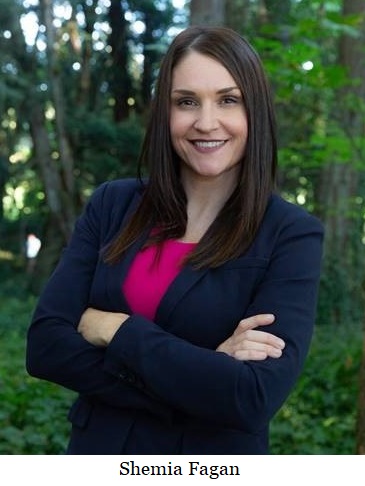

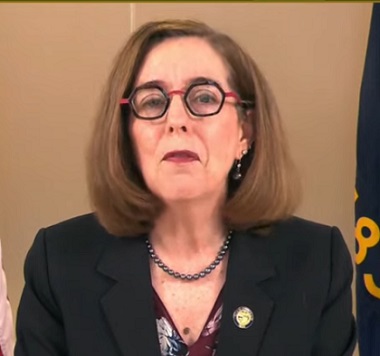



 Representative Brock Smith (R-Port Orford) has announced his plans to succeed Senator Heard after his retirement from the Oregon Legislature.
Representative Brock Smith (R-Port Orford) has announced his plans to succeed Senator Heard after his retirement from the Oregon Legislature.




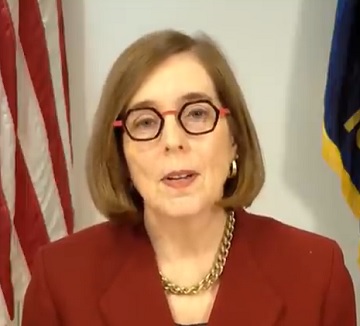

 Republican Leaders reacted. “Governor Brown has once again taken executive action with zero input from Oregonians and the legislature. Oregon has not executed an individual since 1997 and has only executed two criminals since voters adopted the death penalty in 1984,†said House Republican Leader Breese-Iverson (R-Prineville). “Her decisions do not consider the impact the victims and families will suffer in the months and years to come. Democrats have consistently chosen criminals over victims.â€
Republican Leaders reacted. “Governor Brown has once again taken executive action with zero input from Oregonians and the legislature. Oregon has not executed an individual since 1997 and has only executed two criminals since voters adopted the death penalty in 1984,†said House Republican Leader Breese-Iverson (R-Prineville). “Her decisions do not consider the impact the victims and families will suffer in the months and years to come. Democrats have consistently chosen criminals over victims.â€



